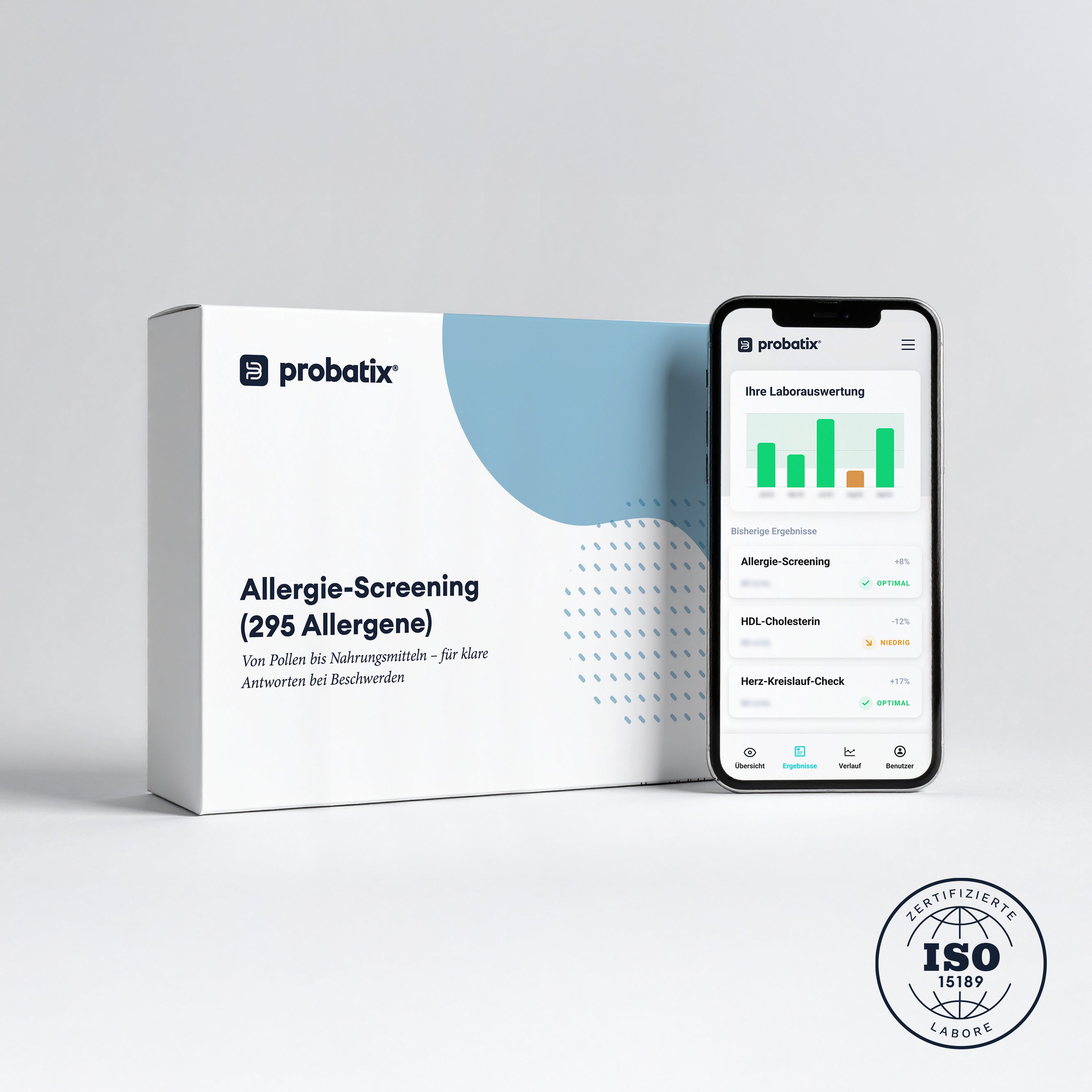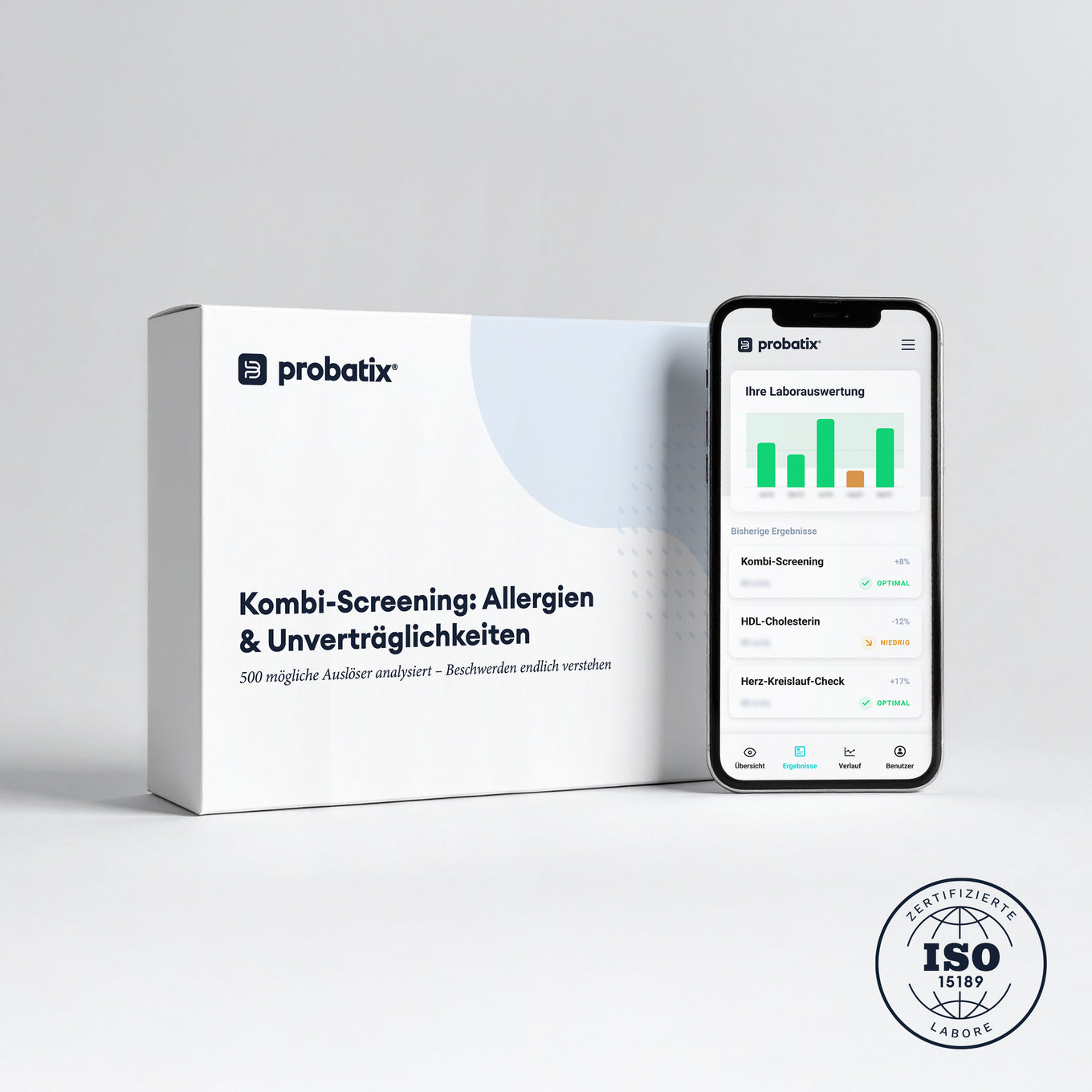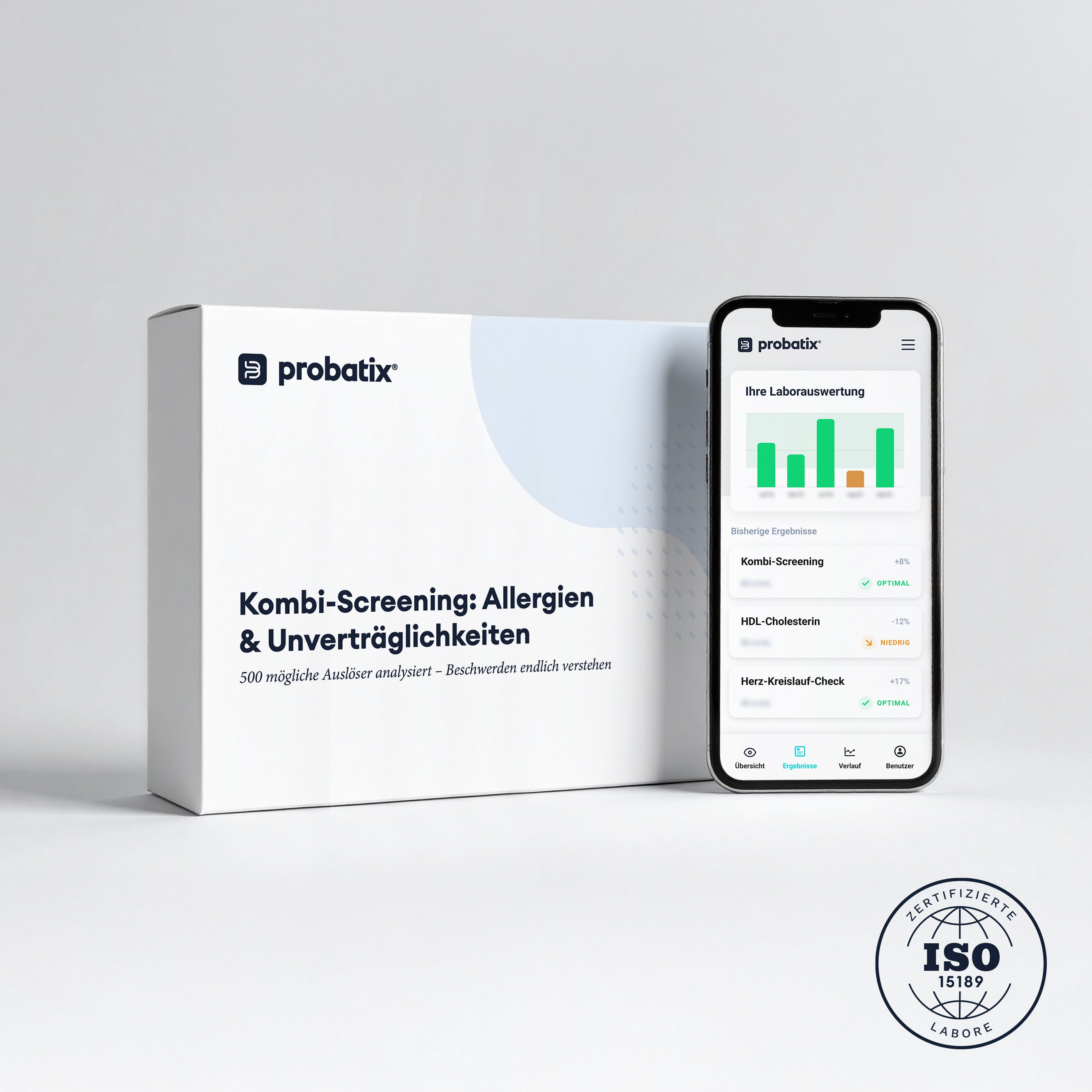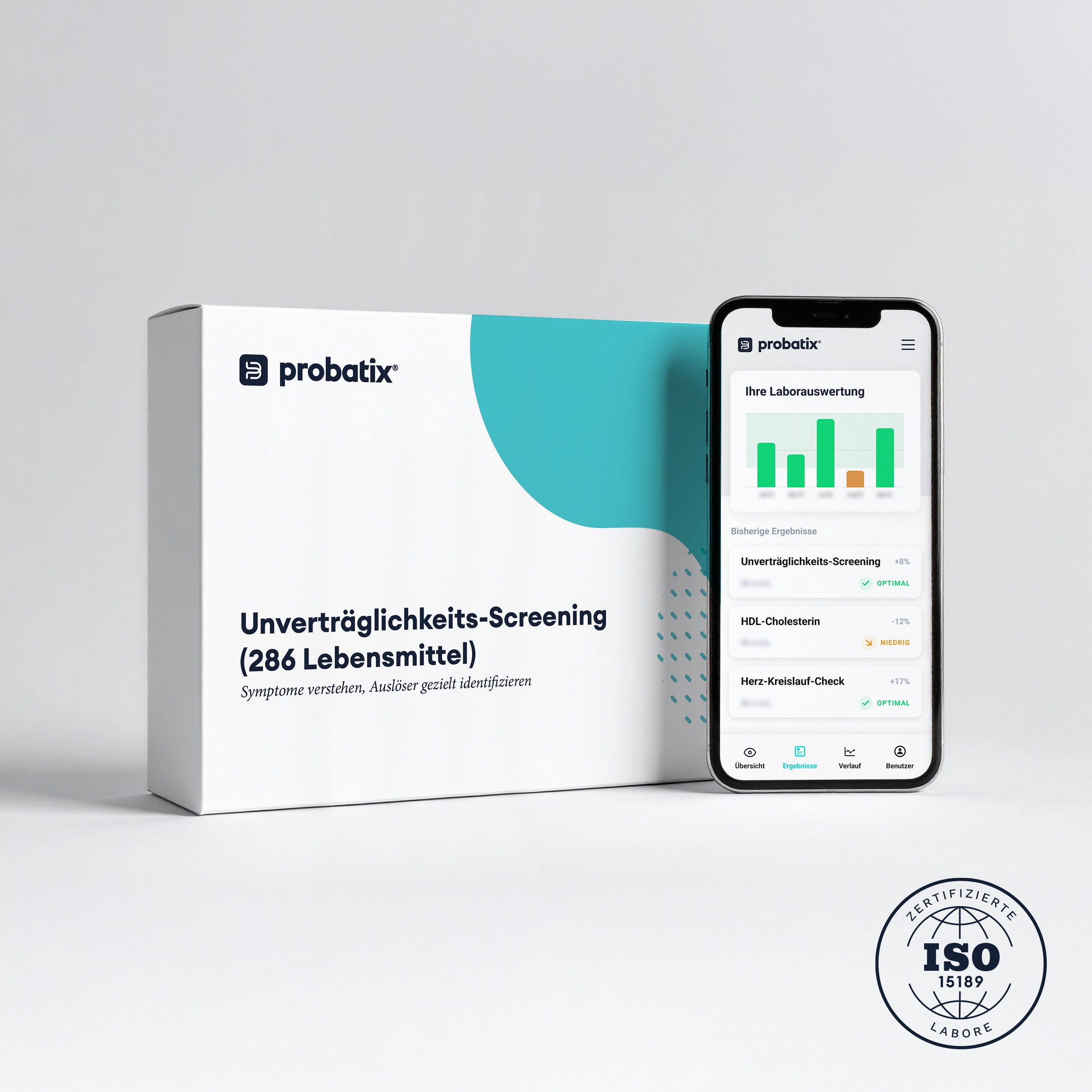
Allergies and Intolerances
Do you suffer from recurring issues such as digestive problems, skin irritations, or breathing difficulties and don't know why? It could be an allergy or food intolerance behind it.
By the way: Intolerance and sensitivity mean the same thing – both terms describe the body's difficulty in properly processing certain foods. Our comprehensive tests help you find the cause and pave the way to a symptom-free life.
The best source for further information on the topic of allergies is the German Allergy and Asthma Association.
Key Messages
💡 Symptoms such as skin irritations or digestive problems can be indicators.
💡 Blood tests reveal allergic reactions and intolerances.
💡 Results help to avoid triggers and alleviate discomfort.

What are allergies?
Allergies are overreactions of the immune system to actually harmless substances, known as allergens. These can be found in foods, pollen, animal hair, and much more. Your body mistakenly recognizes these substances as a threat and reacts with symptoms such as sneezing, itching, rashes, breathing difficulties, or in rare cases, even dangerous allergic shocks.
Common allergens:
- Pollen
- House dust mites
- Animal hair
- Foods like peanuts, milk, or eggs

What are food intolerances?
In contrast to allergies, intolerances are sensitivities where the body has difficulty processing certain substances. The immune system is not involved; instead, enzymes necessary for breaking down certain foods are often lacking. Symptoms often appear with a delay and usually manifest as digestive issues such as bloating, diarrhea, or nausea.
Typical food intolerances:
- Lactose intolerance
- Fructose intolerance
- Histamine intolerance
The difference between allergies and intolerances
While in the case of an allergy the immune system becomes active and immediately causes symptoms, an intolerance is a reaction to the lack of availability of enzymes or other metabolic processes in the body. Allergies can potentially be life-threatening, intolerances are generally not dangerous, but still very unpleasant and significantly impair quality of life.
Allergies:
- Involvement of the Immune System: In a food allergy, the immune system mistakenly reacts to a harmless food as a threat and releases antibodies to combat the perceived allergen. This can lead to an immediate reaction.
- Rapid Symptoms: Symptoms usually occur within minutes to hours after consumption and can trigger rashes, breathing difficulties, swelling, gastrointestinal issues, or even life-threatening reactions such as an anaphylactic shock.
- Small Amounts are Sufficient: Even a very small amount of the allergen can provoke a strong reaction.
Incompatibilities or intolerances:
- No immune reaction: An intolerance is not triggered by the immune system but occurs because the body cannot properly digest or process certain components of foods. Often, necessary enzymes are lacking.
- Delayed symptoms: Symptoms often appear delayed, sometimes only hours after consumption, and usually affect the digestive system (bloating, diarrhea, abdominal pain). They are unpleasant but rarely dangerous.
- Quantity dependent: Symptoms often only occur when a larger amount of the food has been consumed.

Why should I take an allergy and intolerance test?
Many people suffer for years from unclear symptoms without knowing that allergies or intolerances could be the cause. A targeted test provides clarity and helps you identify and avoid the triggers.
- Targeted Treatment: With a clear test result, you can specifically avoid the triggers and alleviate your symptoms.
- Improve Quality of Life: Find out which foods or environmental factors harm you to live carefree again.
- Avoid Dangerous Reactions: Especially with allergies, quick action can be life-saving, particularly in severe reactions like an anaphylactic shock.
Our Tests: FOX & ALEX Technology
Our tests are based on state-of-the-art FOX & ALEX technology and provide you with a reliable and comprehensive analysis of your allergies and intolerances. We measure specific IgE and IgG antibodies to determine if and how strongly your body reacts to certain substances.
Your benefits with us
Reliable results:
All tests are analyzed in certified laboratories to ensure the highest reliability.
Quick and easy:
We will send you the test kit and you will perform a sample collection with a simple finger prick.
Digital Result:
Your results are accessible at any time via our platform and easy to understand.
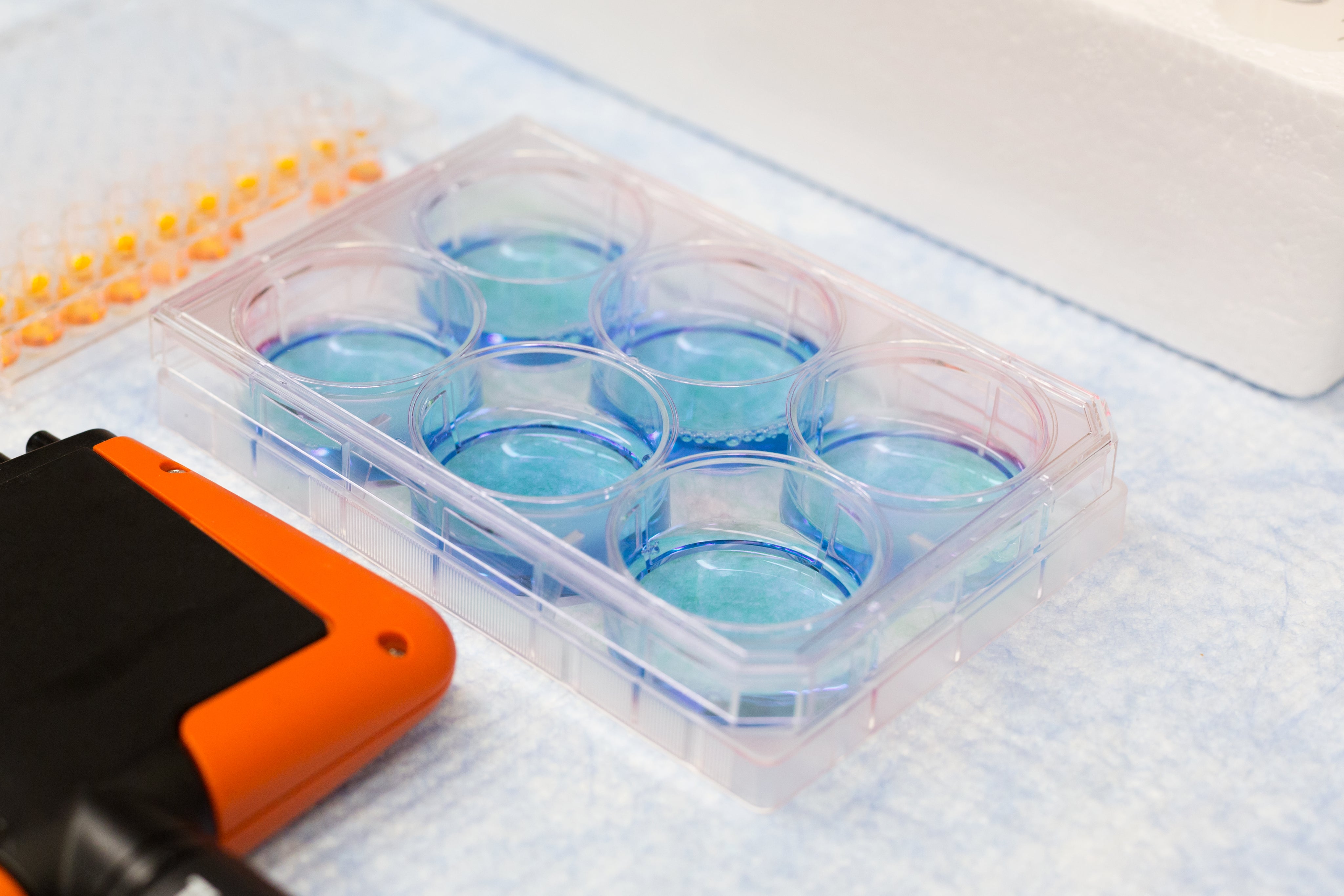
Take the first step now
Find out if allergies or intolerances are causing your symptoms, and receive targeted measures to improve your quality of life.
FAQ: Frequently Asked Questions about Allergies and Intolerances
What is the difference between an allergy and an intolerance?
What is the difference between an allergy and an intolerance?
An allergy is a reaction of the immune system to certain substances, while an intolerance usually affects the digestive tract and does not involve the immune system.
How can I determine if I have an allergy?
How can I determine if I have an allergy?
An allergy test conducted through blood or skin can help diagnose allergies to specific substances. A doctor's visit is crucial.
What symptoms occur with an allergy or intolerance?
What symptoms occur with an allergy or intolerance?
Allergies can cause skin rashes, itching, breathing difficulties, or swelling. Intolerances often manifest through gastrointestinal issues such as bloating or diarrhea.
Can intolerances be cured?
Can intolerances be cured?
Intolerances, such as lactose intolerance, are generally not curable, but can be well controlled through an adapted diet. Allergies can sometimes be treated through desensitization.

